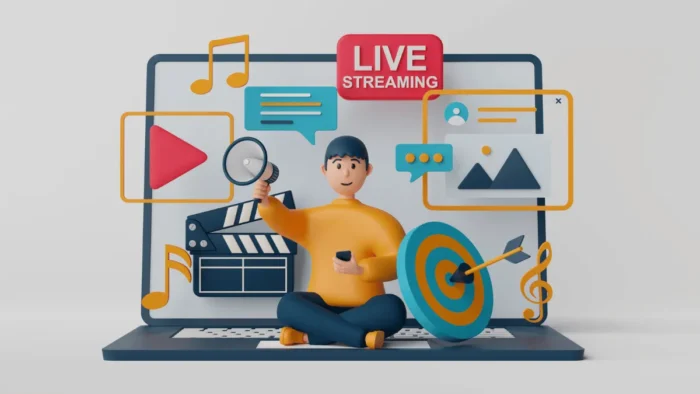In today’s digital landscape, content websites have emerged as a cornerstone of information, entertainment, and education for a global audience. The potential to monetize these platforms has attracted creators, entrepreneurs, and businesses alike, aiming to transform their passion for content creation into sustainable income.
However, navigating the various monetization strategies can be daunting, especially for those new to the digital domain. This guide will cover one of the best ways to monetize content websites and offer a comprehensive overview of direct and indirect revenue-generating methods.
Direct Monetization Strategies
The following strategies are often the first port of call if you are one of many content creators looking to monetize their digital creations. They offer straightforward ways to earn income.
1. Advertising
Advertising is one of the oldest and most common methods for monetizing content. It involves displaying third-party ads on your website, earning revenue based on different models such as the following:
- The pay-per-click (PPC) ads model pays you every time a user clicks on an ad that is displayed on your website. To succeed, optimize your site’s layout to improve ad visibility and click-through rates. Partnering with reputable ad networks like AdSense allows you to access a wide range of advertisers, ensuring that the ads displayed are high quality and relevant to their audience.
- Display ads can be banners, sidebars, or interstitials. Maximizing earnings involves strategic placement and choosing ads that are relevant to your audience.
- Native Advertising: These ads blend with your website’s content, making them less intrusive. Successfully implementing native ads requires balancing ad integration and user experience.
2. Sponsored Content
Using sponsored content requires you to create content specifically for a brand or advertiser. This content can take different forms, such as articles, videos, or podcasts, and it is designed to seamlessly integrate with your website’s existing content while promoting the sponsor’s product or service.
To successfully monetize your content through sponsored content, you must:
- Identify potential sponsors like brands that align with your content’s niche and audience interests.
- Create compelling sponsored posts with high-quality, engaging content that naturally integrates the sponsor’s message.
- Managing sponsor relationships through building long-term relationships can lead to more consistent revenue. To foster trust and repeat business, ensure clear communication and consistently deliver on your commitments.
3. Affiliate Marketing
Affiliate marketing is a specific monetization strategy where you promote some affiliate products or services and earn a particular commission for each sale or action your audience takes through your referral. It’s a performance-based strategy that can be highly lucrative if you have a dedicated and engaged audience.
If you want to monetize your content with affiliate marketing, you must:
- Choose the right affiliate programs that offer products or services relevant to your audience’s interests.
- Develop strategies for effective affiliate content like honest reviews, tutorials, and how-to guides to promote affiliate products authentically.
- Track and optimize your affiliate earnings through tracking codes and analyze performance data to optimize your affiliate strategies for higher conversions.
4. Product Sales
Selling your products, whether digital or physical, can be a significant revenue stream. This approach requires developing products that meet your audience’s needs and preferences.
There are several options when it comes to product sales on your content website:
- Digital products: You can market your e-books, online courses, and webinars to your audience as extensions of your content.
- Physical products: For those with merchandise or other tangible physical products, integrating an e-commerce platform into your website can facilitate sales.
- Subscription services: You can also offer premium content, services, or products on a subscription basis, which can generate recurring revenue and improve your financial stability.
Indirect Monetization Strategies

Unlike direct monetization methods, which involve earning money through explicit advertising, sponsored content, affiliate marketing, and product sales, indirect strategies focus on building a solid foundation that indirectly contributes to revenue growth.
Let’s look at some strategies you can use as a part of indirect monetization:
1. Build a Brand
Develop a strong, recognizable brand because it is crucial for long-term success and indirect monetization. A solid brand identity can attract more visitors, retain them as loyal followers, and increase their willingness to engage with direct monetization efforts.
Personal branding involves positioning yourself as an expert in a specific niche, thereby attracting a dedicated audience looking for authoritative content.
Conversely, corporate branding focuses on creating a memorable brand within your corporate website, making it a go-to source within its industry. Both strategies require consistent messaging, quality content, and a unique voice that will resonate with the target audience.
2. Email Marketing
Email marketing is one of the best tools for engaging directly with your audience and nurturing them toward different monetization opportunities. As a content creator, you can build an email list to inform your audience about new content, special offers, and directly marketed products or affiliate deals.
Effective email campaigns can deliver high value to your subscribers through informative content, exclusive offers, or insider insights. If you succeed in delivering effective email campaigns, you will achieve higher engagement rates and, ultimately, more monetization opportunities.
3. Search Engine Optimization (SEO) And Content Strategy
If you have a well-optimized website and use a strategic approach when you create content, you can attract more organic traffic. Because of that, there is the possibility of indirect monetization. Keyword research is an essential part here because it will help you identify the right topics and terms related to your target audience that is searching for, in such a way that allows you to adjust your content to meet their specific needs.
High-quality content that engages readers establishes your site as an authoritative source, increasing repeat visits and the chance of conversions through other monetization methods. A strong link-building strategy will improve your site’s authority and search engine rankings and, in such a way, will boost traffic and indirect revenue potential for you.
4. Social Media Integration
Social media platforms offer different ways to engage with your audience and drive traffic to your website. Choosing the right platforms for your content and creating shareable, engaging posts can significantly increase your site’s visibility and audience reach.
Regular interaction with your social media followers fosters community. It encourages them to participate in your site’s direct monetization efforts, such as visiting sponsored content or purchasing through affiliate links.
Conclusion
Ultimately, the best ways to monetize content websites involve a holistic approach that values quality content, audience engagement, and strategic diversification of revenue streams. Content creators can transform their digital spaces into thriving, profitable ventures with patience, persistence, and continuous optimization.





